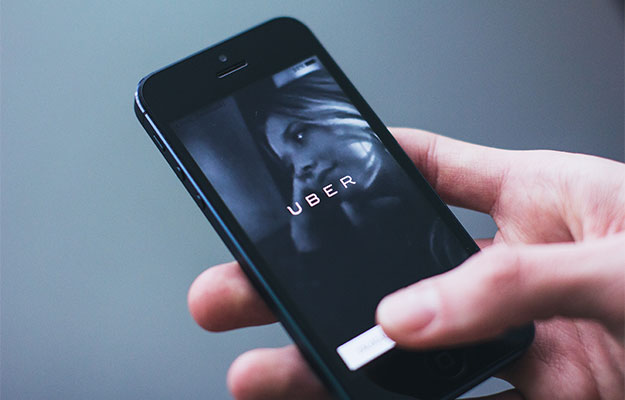Uber Used Secretive Greyball Program To Evade Law Enforcement Sting Operations
Is the Uber you just hailed trying to evade the police? It appears that Uber was using a tool called Greyball to elude law enforcement investigations and irate intrenched competition like traditional taxi companies.
Greyball utilizes data collected from Uber’s app in order to root out and circumvent law enforcement officials. The tool is part of the program “Violations of Terms of Service” or VTOS that was originally created by Uber to get rid of people it believed were using the service incorrectly. Greyball is predominantly used outside of the United States, but was approved for use by Uber’s legal team.

Uber’s use of Greyball was revealed by four former and current anonymous Uber employees and was confirmed in a recorded video from 2014. Portland, Oregon code enforcement officer Erich England and his team posed as riders and attempted to hail an Uber ride. All of their requests were quickly cancelled. Uber had tagged England and his colleagues as city officials and therefore created a fake version of the app, populated with ghost cars, to prevent the company from being caught.
At the time of England’s investigation, Uber had just started up its service in Portland. The company had failed to get permission from the city and was consequently deemed illegal. Uber also used Greyball to evade officials in cities like Boston, Las Vegas, and Paris, and countries such as Australia, China, and South Korea.
Uber’s surveillance tactics were originally used to protect the physical safety of their drivers. Taxi companies and workers in countries such as France, India, and Kenya often targeted and attacked new Uber drivers. These concerns, however, eventually morphed into evasion of the law. As part of the VTOS program, Uber would allegedly look up credit card numbers to see if they were tied to a police station. It would also go to local electronic stores to look up the device numbers of the least expensive mobile phones, because these were the phones often being used by police officers. There were at least a dozen tactics used in the VTOS program.
Uber has responded to the allegations, stating, “This program denies ride requests to users who are violating our terms of service — whether that’s people aiming to physically harm drivers, competitors looking to disrupt our operations, or opponents who collude with officials on secret ‘stings’ meant to entrap drivers.”
Greyball utilizes data collected from Uber’s app in order to root out and circumvent law enforcement officials. The tool is part of the program “Violations of Terms of Service” or VTOS that was originally created by Uber to get rid of people it believed were using the service incorrectly. Greyball is predominantly used outside of the United States, but was approved for use by Uber’s legal team.

Uber’s use of Greyball was revealed by four former and current anonymous Uber employees and was confirmed in a recorded video from 2014. Portland, Oregon code enforcement officer Erich England and his team posed as riders and attempted to hail an Uber ride. All of their requests were quickly cancelled. Uber had tagged England and his colleagues as city officials and therefore created a fake version of the app, populated with ghost cars, to prevent the company from being caught.
At the time of England’s investigation, Uber had just started up its service in Portland. The company had failed to get permission from the city and was consequently deemed illegal. Uber also used Greyball to evade officials in cities like Boston, Las Vegas, and Paris, and countries such as Australia, China, and South Korea.
Uber’s surveillance tactics were originally used to protect the physical safety of their drivers. Taxi companies and workers in countries such as France, India, and Kenya often targeted and attacked new Uber drivers. These concerns, however, eventually morphed into evasion of the law. As part of the VTOS program, Uber would allegedly look up credit card numbers to see if they were tied to a police station. It would also go to local electronic stores to look up the device numbers of the least expensive mobile phones, because these were the phones often being used by police officers. There were at least a dozen tactics used in the VTOS program.
Uber has responded to the allegations, stating, “This program denies ride requests to users who are violating our terms of service — whether that’s people aiming to physically harm drivers, competitors looking to disrupt our operations, or opponents who collude with officials on secret ‘stings’ meant to entrap drivers.”

